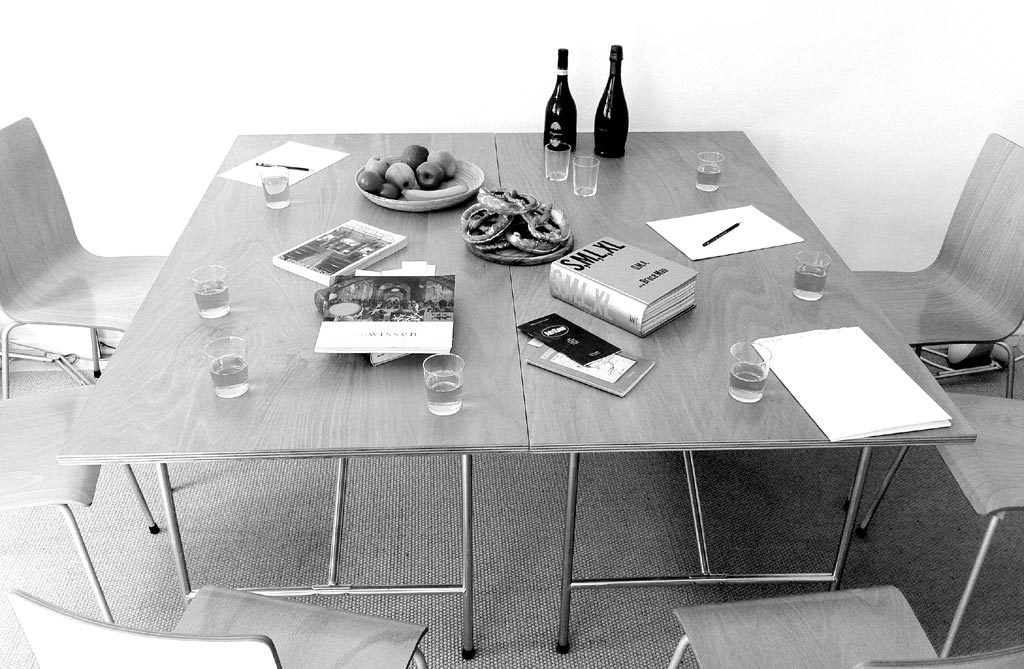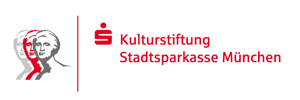DIALOG & TEXT
„Auch in Deutschland gibt es Debatten, die in Schieflage
und immer absurdere Verästelungen geraten, die aus
Ungeduld und Überforderung auf den kleinsten
digitalen Nenner heruntergebrochen werden.“
Eva Menasse, Alles und nichts sagen. Vom Zustand der Debatte in der Digitalmoderne, Köln 2023, S.129
Looking – Feeling – Talking
Thoughts on a Democratic Reception of Art
by Erika Wäcker and Stefan Graupner
At present, it seems that art is subjected to highly emotional and heated political debate even before it is seen, felt, and discussed. The conflicts in various global trouble spots are impacting the cultural sector to such an extent that free and independent art—and the discourse surrounding it—appear to be at risk.
SG: Is it possible to discuss art in a way that isn’t hierarchical or dominated by major political issues?
EW: Nowadays, people often have immediate, and frequently strong, opinions. The fast pace of digital communication channels shortens reaction times, causing calm debates to be overshadowed or drowned out by heated arguments. Simultaneously, personal sensitivity levels seem to be dropping. Too often, the expectation that an artistic stance will be endured, examined from different perspectives, and discussed in a controversial yet constructive manner remains unfulfilled.

SG: Discussing a work of art requires tolerance, empathy, and an understanding of other viewpoints. Does this process reflect how society interacts in both analog and digital contexts? Considering recent developments, probably not.
EW: What can we do about it? The 7th KloHäuschen Biennale offers a miniature example of what art and culture can positively achieve in society. Independent art spaces can showcase unpopular and critical positions that might not be possible in state and municipal institutions. They operate differently from galleries, which engage in the art trade with commercial interests. Often operating at their financial limits, these spaces maintain a democratic understanding of free art with great personal commitment.
SG: Independent art spaces are initiatives that provide platforms for artistic dialogue and discussion in a small, intimate setting.

EW: There is a clear need for discussion. We need a dialogue that allows for different perspectives, experiences, and positions, free from institutional, political, and financial interests. At Wäcker & Graupner, our table discussions on art and socially relevant topics have been well-received by the public.
SG: Talking about art in a private setting, without writing it down, is a very different experience. It involves a cautious search and exploration with words in a private setting. Not having to follow the mainstream of opinion is perceived as liberating.
EW: The basis for a successful debate is treating each other with respect, even when opinions differ. We must always keep in mind that the other person could also be right. We need to start talking and listening to each other. We can acquire these skills through art. The 7th KloHäuschen Biennale, with its more than 30 participating institutions and over 200 artistic positions, offers the opportunity for such an experiment in looking, feeling, and talking.


WÄCKER & GRAUPNER are Dr. Erika Wäcker-Babnik and Dr. Stefan Graupner, two art-historians, specialized in the fine arts of the 20th and 21st centuries. They have been working as a team since 2011.
Among other things, they realize exhibitions and table talks and in 2023 they were running “achtzehnkommazwei – Raum für Kunst”, a small project space at Georgenstraße 72.


DIALOG & TEXT
LOOKING
FEELING
TALKING
by
WÄCKER & GRAUPNER
A Quote
by
Anne Rößner
(Milchstraße 4)
15 YEARS
Das KloHäuschen
by
Dr. Cornelia Oßwald-Hoffmann
PERLEN
by
Tommy Schmidt
(ArtPros)
sorry, only in german
TON-TAFELN
… eine Laudatio
LITTOPIA
Kathrin Assauer
& Silke Tobeler
sorry, only in german
A Comment
by
Sophie-Charlotte Bombeck
(super+Centercourt)
sorry, only in german






